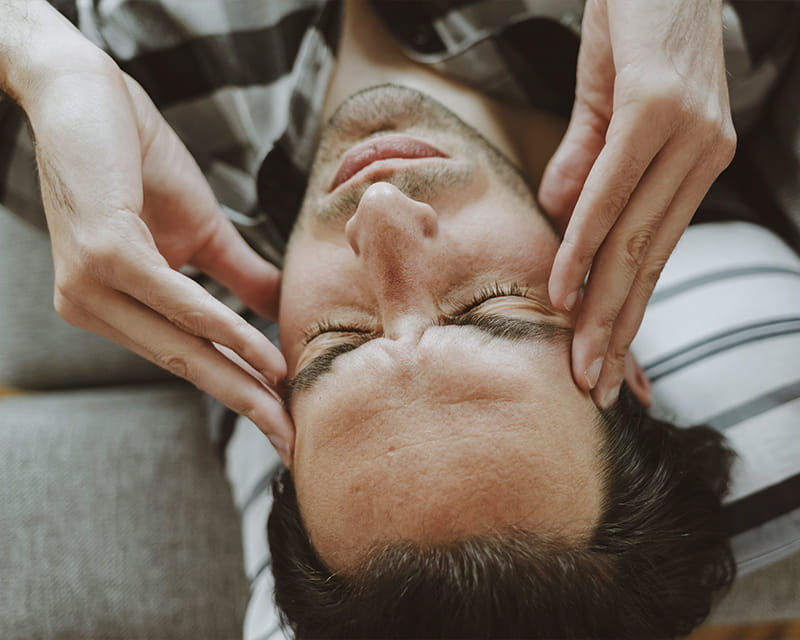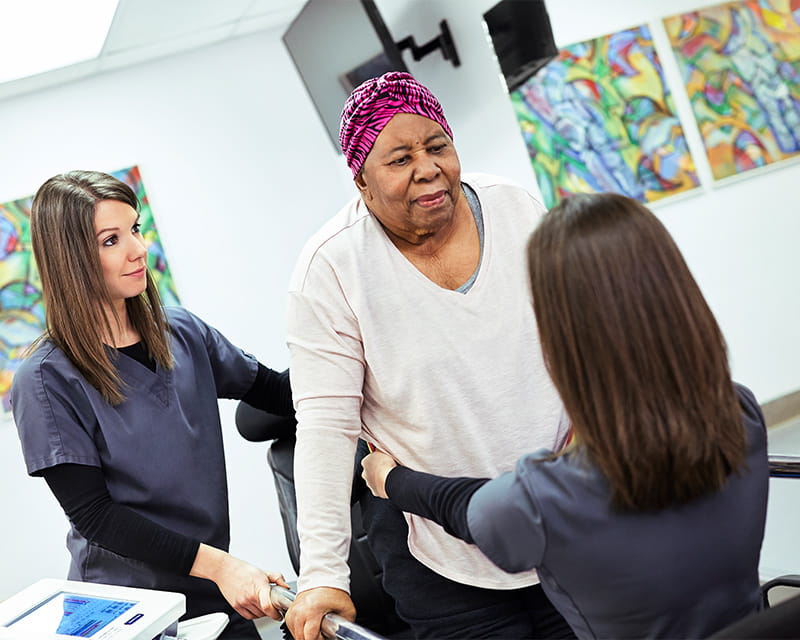
An innovative treatment for chronic post-traumatic headaches

Cancer patients with pain issues and functional deficits have discovered a valuable resource in Ohio State Wexner Medical Center’s Oncology Rehabilitation Outpatient Clinic. Since 2016, the clinic has seen more than 1,000 patients and increased its volume by more than 200 percent.
“Most of our rehabilitation is focused on functional improvement, often improved by pain control,” says Whitney Luke, MD, medical director of Oncology Rehabilitation and interventional pain specialist. “We see patients actively in treatment, cancer survivors and those transitioning to hospice.”
Physiatrists, therapists, psychologists, integrative medicine experts, palliative care specialists and medical oncologists all work together in the same outpatient building.
Dr. Luke offers pain control modalities such as injections, nerve blocks, neuromodulation and intrathecal pain pumps, improving patients’ strength, range of motion and ease of movement help to enhance their quality of life.
Ohio State Wexner Medical Center’s Acute Inpatient Cancer Rehabilitation program works closely with the outpatient clinic. It was the second of only nine such adult programs nationwide to be accredited by the Commission on Accreditation of Rehabilitation Facilities (CARF).
Due to cancer and its treatments, many patients have an assortment of impairments, including musculoskeletal, neurological, neuro-cognitive, and speech and swallowing, which result in functional deficits. An experienced team of physiatrists, therapists, social workers, rehabilitation psychologists and case managers work closely with the oncology team at Ohio State’s Comprehensive Cancer Center – Arthur G. James Cancer Hospital. Together, they manage complex medical and symptom issues while restoring maximum function to cancer patients with impairments.
“Our job is to get them home,” says Brian McMichael, MD, medical director of the rehabilitation hospital. “We are taking care of patients who have the unimaginable challenge of a cancer diagnosis and a new major set of impairments. We also work with their families, who will support them once home.”